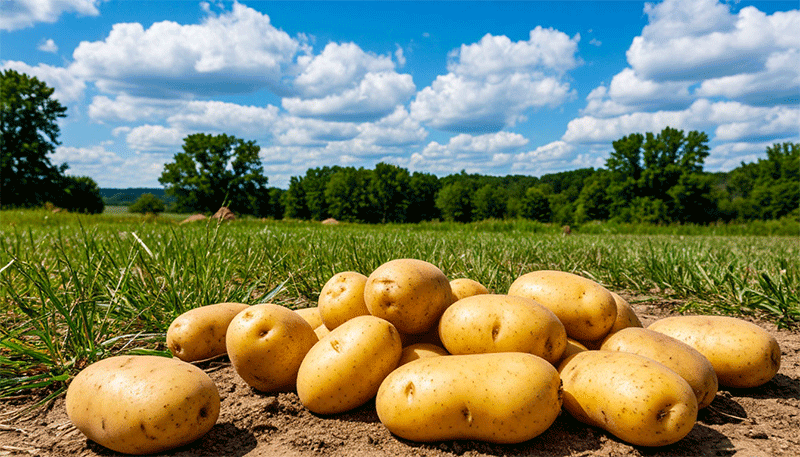In Washington state, vibrant marigold fields are blooming with potential, not just for beauty but for better farming practices. Simplot Grower Solutions (SGS) has launched the Marigold Project, an initiative that leverages marigolds to improve soil health, control pests, and support pollinators. Inspired by a traditional gardening technique, this project is bringing a sustainable twist to modern agriculture.
A Natural Solution for Nematode Control
Nematodes, parasitic worms that attack crops like potatoes and onions, are a persistent challenge for farmers. They cause disease by transmitting pathogens through the soil, leading to reduced yields and increased chemical use. Patrick Williams, an SGS agronomist, spearheaded the project after years of considering how marigolds might combat nematodes on a larger scale.
Research dating back to the 1940s showed marigolds’ potential to suppress nematodes, but no one had scaled the practice commercially. In 2023, Williams partnered with local farmers to test the concept on half an acre of land. Soil tests revealed remarkable results: nematode levels dropped from 160–190 per cup of soil to near-zero within two months of planting marigolds.
“We essentially achieved 100% control with the marigolds,” Williams said.
More Than Pest Control: A Pollinator Haven
In addition to pest control, the marigold fields became a haven for pollinators, critical allies in crop production. Williams described seeing honeybees, bumblebees, butterflies, and even hummingbird-sized moths flocking to the fields. By fostering this biodiversity, the project supports broader ecosystem health and crop pollination.
This dual-purpose approach—suppressing pests while boosting pollinator activity—provides a holistic benefit to agricultural systems.
Scaling Up: From Trial to Transformation
Encouraged by early success, the project expanded significantly in 2024. In collaboration with SGS customers, 130 acres of marigolds were planted after a pea harvest. Direct-seeding marigolds into the crop rotation allowed farmers to seamlessly integrate this practice into their operations.
The next challenge, Williams explains, is refining the technique for different farm rotations:
“How do we work this into a normal farm rotation? That’s the big question we’re aiming to answer.”
A Sustainable Future Rooted in the Past
The Marigold Project exemplifies how revisiting traditional practices can yield modern agricultural solutions. By addressing soil health, pest control, and pollinator decline simultaneously, this initiative aligns with the principles of regenerative agriculture.
Simplot’s nearly century-long history underscores the value of innovation rooted in tradition. As Williams puts it:
“This is going back decades—centuries maybe—to learn from the past to prepare for the future. It’s a win-win situation for farmers, the environment, and sustainability.”
The Marigold Project demonstrates the power of small changes on a large scale. By planting marigolds, farmers are reducing chemical dependency, improving biodiversity, and fostering healthier soils—all while maintaining productive crop rotations. This initiative is a testament to how simple ideas, when applied thoughtfully, can transform agriculture and create a more sustainable future.







